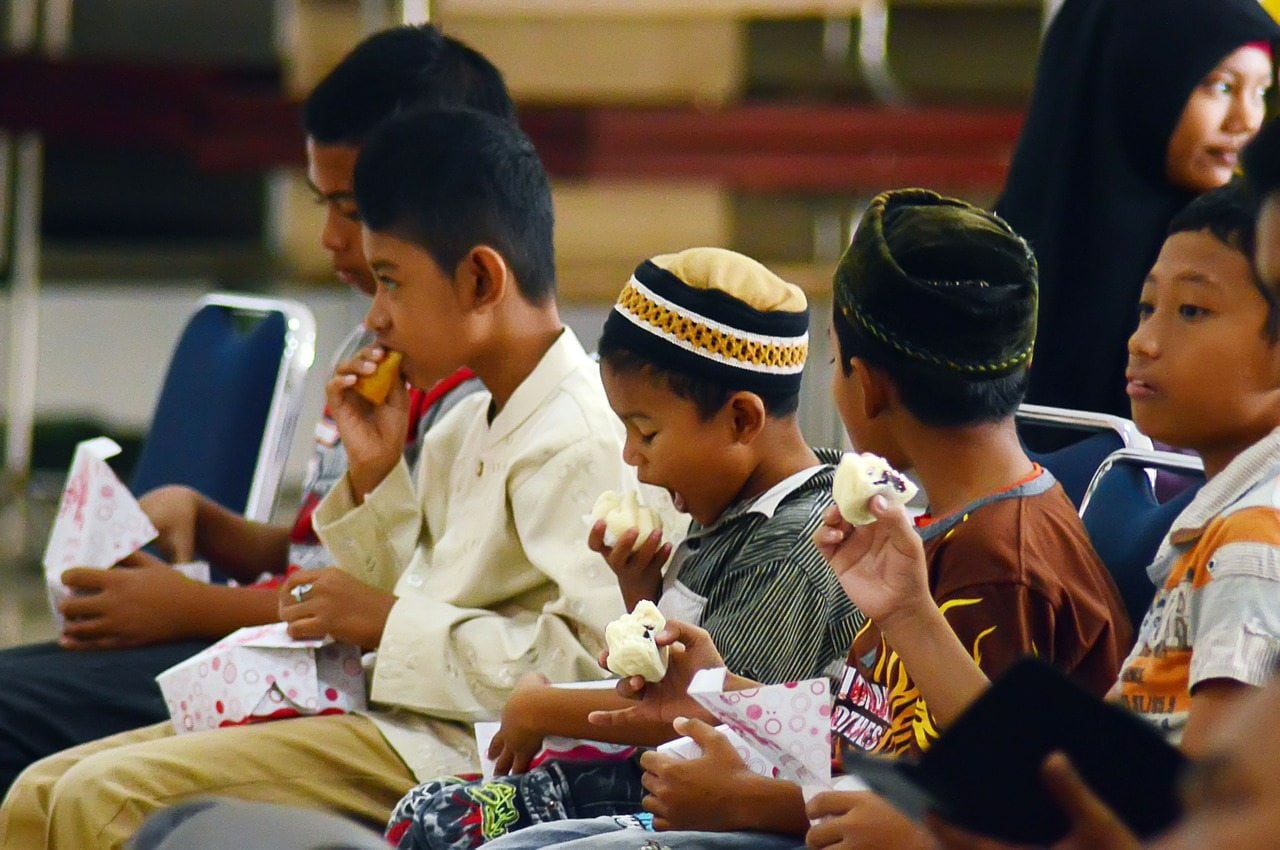How Should a Child Address His Elders?
Answered by Shaykh Abdul-Rahim Reasat
Question: Assalamu alaykum
My question is regarding relationships and their titles.
I know of a single mother who is currently staying with her parents and has a 4 year old son. The mother delivered at her parents house since she was divorced while pregnant. Now the question is about the child’s maternal grandfather. He has taught the child to call him as the father and the wife as the mother. He has been taught to call both his uncles by their names. The child at times even calls his own mother by her name. Is it allowed?
Answer: Wa ‘alaykum as-salam wa rahmatullah wa barakatuh.
I pray you are well.
The child in question has not been taught the proper manners of addressing his elders, and this should be rectified. As for the child referring to his grand-parents as ‘mother’ and ‘father’, if this does not lead to him knowing who who his actual parents are, and if he addressed his own parents respectfully, then it should be fine as long as it does not lead to friction.
Maternal and paternal grandparents are considered to be one’s parents metaphorically, because on one level, they are the means through which we enter the world. This is they we are referred to as the ‘Children of Adam’ in the Qurʾan.
This whole situation should be tackled with wisdom and gentleness. Worsening relations in this situation really would be the worst case scenario.
Respecting Elders
The Messenger of Allah (Allah bless him and give him peace) said, ‘He who does not show kindness to our young, respect to the elders among us, and due respect to our scholars, is not from us.’ (Tirmidhi). ‘Not being from us’ is an expression used to indicate that such a person is not following the guidance the Messenger of Allah (Allah bless him and give him peace) on these matters, and that it something which should be rectified.
Titles
Children should be taught to refer to their elders with titles. Islam is not a military, so the titles do not have to overly aggrandised. Rather, the opposite is true. If we look at the way in which the prophet Yusuf addressed his father as a child, Yā Abati, two matters becomes very clear.
Firstly, there was respect in the address. The word ‘Yā’ is usually used to refer to someone who is far away, or metaphorically for someone who is high in rank. This is a recognition of his father’s rank.
Secondly , the word ‘abati’ could be translated as ‘my dear, beloved father’ (12:4-5). The word is full of love. Consequently, we can infer from this that children should be taught to love their parents, and to respect them. Both aspects are important.
In modern times some parents wish for their children to be friends with them – which is fine if done properly – but they sacrifice the respect element in the process. In the worst cases, this makes the children rude and disrespectful. According to social scientists like Dr Leonard Sax, children who are disrespectful end up with depression in many cases later in life because they do not know how to navigate simple relationships.
Give Respect To Receive It
The greatest way is that of the prophets. We see that the prophet Yaʿqub also spoke to his children with love and respect. He used the same particle ‘Yā’ to address his son, and he used the word ‘bunayya’ address him. This can be translated as ‘my dear little boy’, a term full of endearment and love.
Addressing someone with love and respect – even if it may be a child – brings the same sort of love and respect back. Children learn better this way. This was also the term used by Luqman the Wise when he advised his older son.
Allah knows best.
Wassalam,
[Shaykh] Abdul-Rahim Reasat
Shaykh Abdul-Rahim Reasat began his studies in Arabic Grammar and Morphology in 2005. After graduating with a degree in English and History he moved to Damascus in 2007 to study and sit at the feet of some of the most erudite scholars of our time.
Over the following eighteen months he studied a traditional curriculum, studying with scholars such as Shaykh Adnan Darwish, Shaykh Abdurrahman Arjan, Shaykh Hussain Darwish and Shaykh Muhammad Darwish.
In late 2008 he moved to Amman, Jordan, where he continued his studies for the next six years, in Fiqh, Usul al-Fiqh, Theology, Hadith Methodology and Commentary, Shama’il, and Logic with teachers such as Dr Ashraf Muneeb, Dr Salah Abu’l-Hajj, Dr Hamza al-Bakri, Shaykh Ahmad Hasanat, Dr Mansur Abu Zina amongst others. He was also given two licences of mastery in the science of Qur’anic recital by Shakh Samir Jabr and Shaykh Yahya Qandil.
His true passion, however, arose in the presence of Shaykh Ali Hani, considered by many to be one of the foremost tafsir scholars of our time who provided him with the keys to the vast knowledge of the Quran. With Shaykh Ali, he was able to study an extensive curriculum of Qur’anic Sciences, Tafsir, Arabic Grammar, and Rhetoric.
When he finally left Jordan for the UK in 2014, Shaykh Ali gave him his distinct blessing and still recommends students in the UK to seek out Shaykh Abdul-Rahim for Quranic studies. Since his return he has trained as a therapist and has helped a number of people overcome emotional and psychosomatic issues. He is a keen promoter of emotional and mental health.
